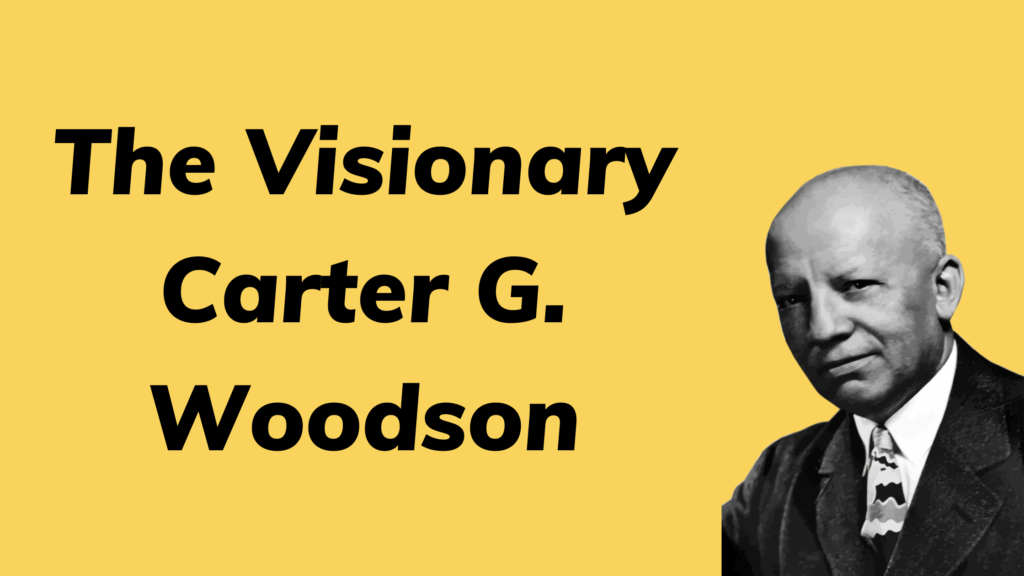The Visionary Carter G. Woodson

As the Jack Kent Cooke Foundation continues to celebrate cultural heritage months and explore various aspects of the history and identity of different groups, this February we note that what is now known as Black History Month was the brainchild of Black history pioneer Carter G. Woodson.
Woodson was born in 1875 to formerly enslaved persons and his childhood – not unlike that of other poor Black children of that era – saw erratic schooling as he worked first on the family farm and later in coal mines. Largely self-taught, he saved to enter one of the few Black high schools then available. Woodson went on to receive a baccalaureate from Berea College in Kentucky, a second baccalaureate and a master’s from the University of Chicago, became a teacher, and later was the first child of enslaved persons to receive a doctorate from Harvard University in 1912.
From childhood, Woodson was drawn in by the life stories of Black people and decided to make Black history a focus of his career. Prior to his scholarly exploration of this topic, there was little or no education about the role of African Americans in building the colonies or the United States. In 1915, Woodson and colleagues created the Association for the Study of Negro Life and History (ASNLH), later renamed the Association for the Study of African American Life and History, because he believed that most teachers and historians, including the American Historical Association, neglected – or perhaps blatantly disregarded – Black history. The following year, the ASNLH published the first edition of the Journal of Negro History, which is still published today as the Journal of African American History.
In 1926, Woodson was behind the establishment of the first Negro History Week, a national program intended to teach public school children about the contributions and successes of Black people in the U.S. The celebration was scheduled during the second week of February to honor President Abraham Lincoln, who wrote the Emancipation Proclamation, and Frederick Douglass, who did not know the actual date of his own birth but took February 14 as his birthday. During the nation’s bicentennial in 1976, President Gerald Ford officially recognized February as Black History Month.
Woodson published books on Black history topics ranging from the church to migration to education. His home in Washington, DC, is now an historic site, but closed for renovation until spring 2023.
Sometimes I wonder what the “father of Black history” would think of his legacy. What would Woodson have thought in 2003 when Congress established the National Museum of African American History and Culture (NMAAHC) as part of the Smithsonian Institution? This past week, I have been pondering what he would think about recent events in the U.S.
For more information about Carter G. Woodson and Black History Month, please visit:
The story behind Black History Month — and why it’s celebrated in February : NPR
Journal of African American History – ASALH – The Founders of Black History Month